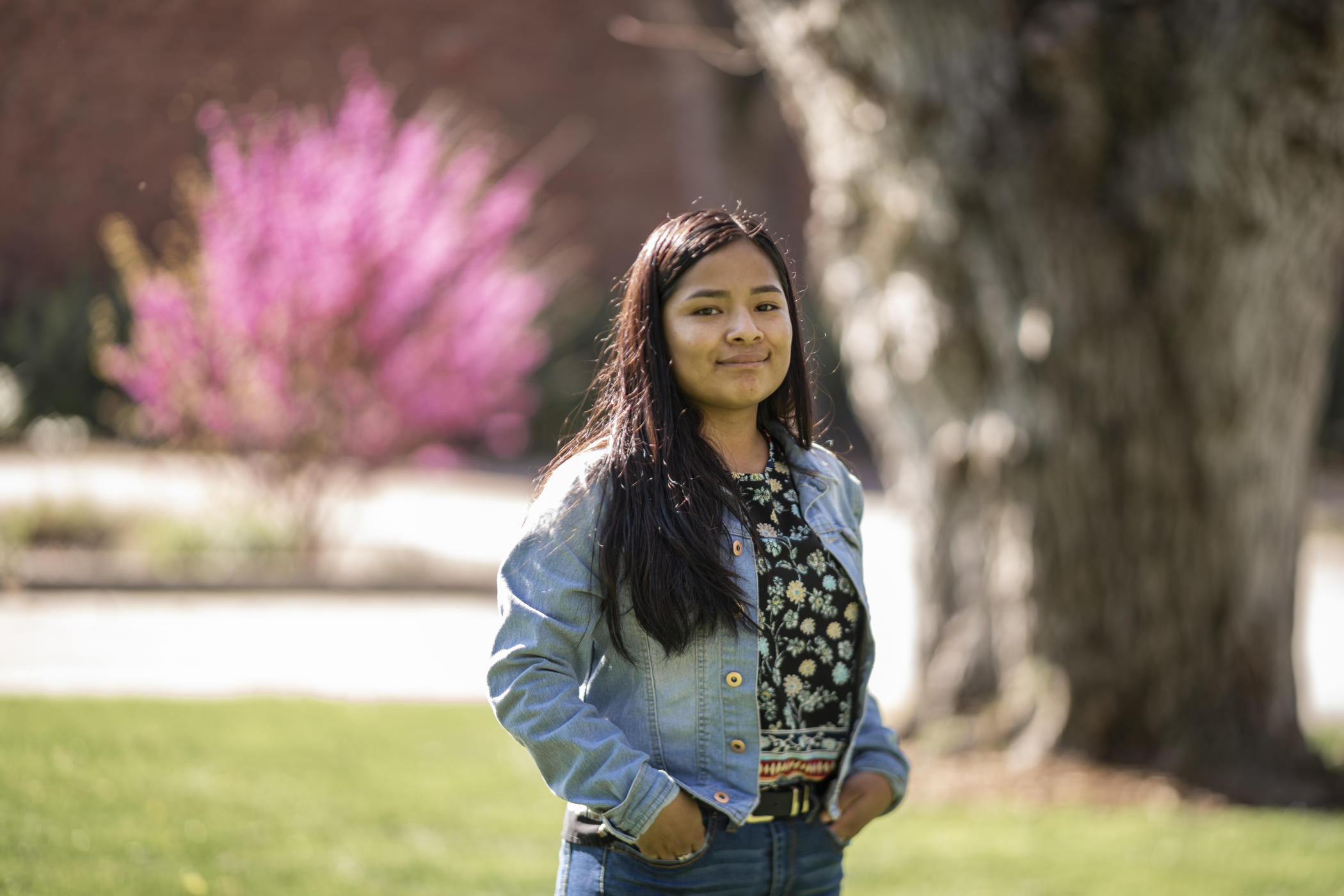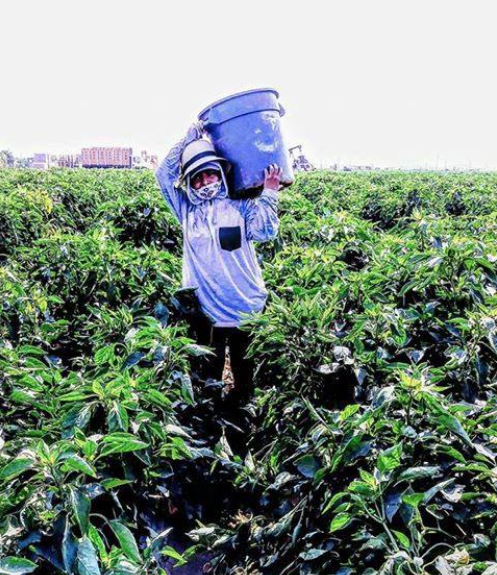César Chávez’s Legacy: Reflections From the Field

Cecilia Apolinar, an International Relations student, will provide her experience and impacts of Cesar Chavez in her life for a voices column, photographed on Friday, March 29, 2019, in Chico, Calif. (Jason Halley/University Photographer/CSU Chico)
Senior Cecilia Apolinar is majoring in international relations and Spanish. Last summer, in addition to picking bell peppers in Bakersfield to earn money for books and tuition, she interned with the United Farm Workers, the union and civil rights organization that was cofounded by César Chávez and continues to advocate for farmworkers today.
In 2005, my parents came from Michoacán, Mexico, looking for the American Dream.
Everything was new—including the language and culture. As they went to work in the fields picking vegetables, my parents left my brother and me with my aunt in Mexico so they could work and give us a better life and education.
After one year apart, my parents decided they wanted my brother and I to come to the United States because they missed us. My brother and I arrived in June 2006. I was so happy that I was getting the opportunity to come to the United States, but I knew in this country, my life would be difficult because I would work in the field just like my parents.

Each summer, my parents moved from place to place for work once the farming season in Coachella Valley was over, including to Bakersfield to work in the grapes. I was nine years old—too young to work—so I went to summer school. Thanks to the efforts of César Chávez, children today are not allowed to work in the fields as they once did. Without his efforts, I cannot help but think maybe I would have worked as a child in order to help my parents, because the wages were so low.
When I turned 14, I started working with my parents picking bell peppers on my school vacations. The first time I went to work, the foreman stopped me because I was very small, but in the end, he let me because he knew I had to help my parents. I have been working in the fields ever since. I’ve worked in crops including bell peppers, grapes, onions, and lettuce. I know from experience how difficult it can be—not only because you need to get up early, like 3 or 4 a.m.—but because it is physically tiring and hard especially for women.

For me, César Chávez Day means a lot because he did so much for the farmworkers. If today’s job of a field worker is cruel, I cannot imagine how it was before César Chávez. It is thanks to him that workers are paid a little better, can have breaks, and are allowed to go to the bathroom. Because of him and his movement, today farmworkers know they have rights just as any other person.
But, there is still a lot that needs to be done for farmworkers. I hope his legacy will only continue, and change will continue to improve conditions for people like my parent and those I have worked alongside with in the fields.
One of the things that has inspired me the most about César Chávez is that he showed that a person can be the change peacefully and do justice for those who do not have a voice. I think it is very important that we honor him. I celebrate César Chávez Day by standing up when I see a worker is not being treated right, and we all should celebrate this day by speaking up an teaching others about César Chávez’s legacy.


